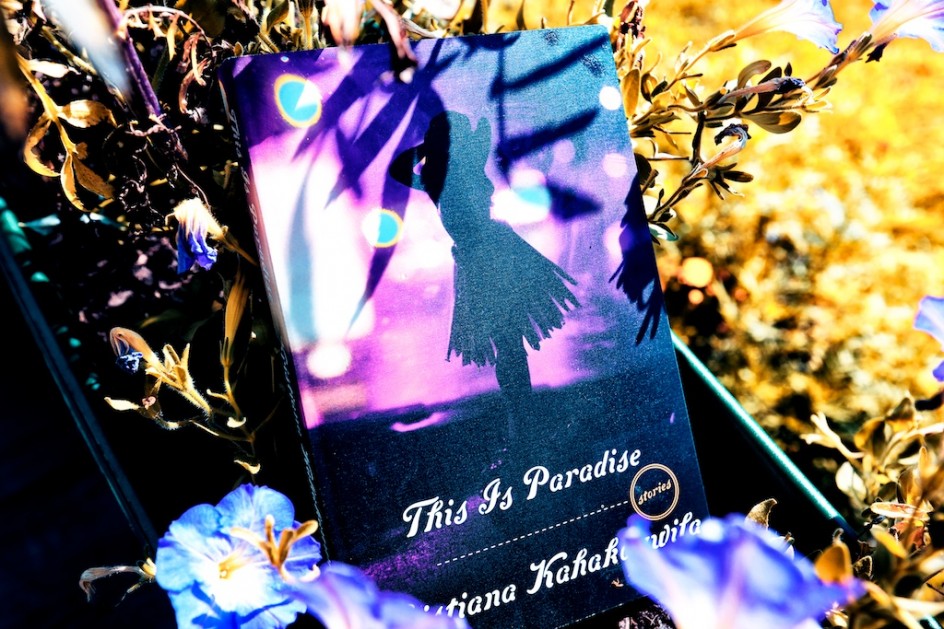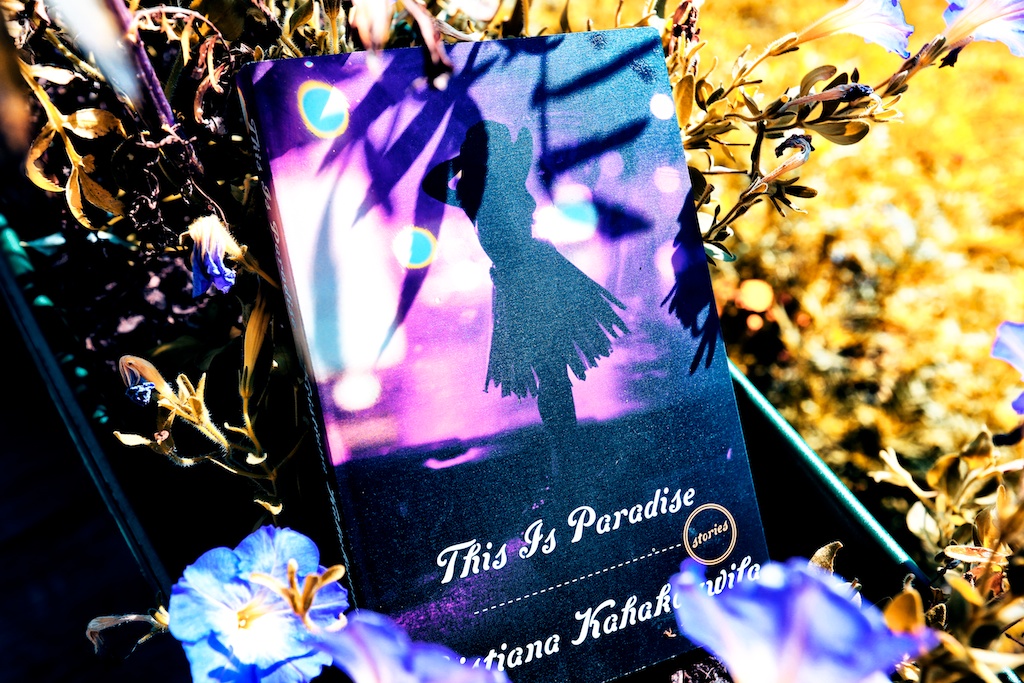
These book reviews are written in conjunction with Battenkill Books of Cambridge, N.Y. If you wish to purchase “This Is Paradise,” please consider buying it from Battenkill, my local bookstore, where I work as Recommender-In-Chief. You can call the store at 518 677-2515, visit their website or e-mail [email protected]. Amazon and corporate publishers are working to strangle independent bookstores. Think local, buy local. If you want bookstores to survive, consider buying your books here or at your local bookstore. We want to do business with humans, we want bookstores to survive.
__
There are lots of wonderful things about “This Is Paradise,” a collection of wonderful and evocative short stories about Hawaii by Kristiana Kahakauwita, a native Hawaiian who studied writing at Princeton and now teaches in Washington state. It is surprising, beautifully written, original and even inexpensive (a $16 paperback from Hogarth.)
Kahakauwita brings us Hawaii from the perspective of the native people who live there, and who are being increasingly pressured and displaced by the kind of rampaging corporate development and greed that has laid waste so many once beautiful parts of America, especially the coastlines.
Hawaii advertises itself as paradise and so do the airlines and hotels that lure tourists there and drive property values so high that Hawaiians can’t live there anymore. This is a fresh view of paradise, disturbing and compelling, a pressured but still vibrant culture. In the opening story, a group of hotel maids go to the hotel bar to have some drinks and overhear Susan, a tourist, whispering to her brother: “Everyone talks about aloha here, but it’s like Hawaiians are all pissed off. They live in paradise. What is there to be so mad about?”
“We look at each other,” says Lani,” and we feel the heat rising in our faces. Our families are barely affording a life here, the land is being eaten away by developers, the old sugar companies still control water rights. Not only does paradise no longer belong to us, but we have to watch foreigners destroy it. We have plenty of aloha for someone who appreciates. We have none for a girl like this…” The story is told in the voices of the women of Waikiki, they present a haunting portrait of life as it is actually lived out of sight of the big hotels.
This haunting opening – Susan, a Haole (white) meets a surprising fate – sets the tone for a mesmerizing look behind the polished face of paradise. Hawaii’s story is that of the many paradises in America, from Maine to Florida, San Diego to Seattle that have experienced the same fate in one form or another.
I loved the story of “Wainie,” a young and very tough woman who sacrifices love and peace of mind to follow in her murdered father’s footsteps as a victorious cock-fighter, it is vivid and strikingly original. In another story, a young gay Hawaiian man returns to the island from San Francisco to be with his dying father and confront the family with the truth about his real identity.
Hawaii is a state that is far from the New York and Washington media concentrations that shape our so-called news. We hear little about it, know little about it. Many of the characters in this sweet and enchanting book speak the pidgin language still used by older Hawaii natives.
In its own distinctly different ways, all of the characters deal with identify – native or mainland, gay or straight, Hawaiian or American. Hawaii is a fractured world, paradise to the tourists who flock there, a constant struggle over money, values and culture for the people who used to live in this island world but who have literally been driven to the margins by growth and money. White people are not beloved, neither are the tourists the locals depend on. This is an honest exploration of the true life of modern Hawaii, from the the happy dancers and singers seen in movies and media reports, very different from the gauzy and romantic notions of tourist vacations.
The stories are filled with rich language, perceptive insights and heart-warming narratives. Love reigns here, and emotion. It is not a light book, but very much a triumph of story-telling and Kahakauwita has a brilliant ear for dialogue. It is entertaining, the debut of a powerful new literary voice I imagine. It is a searing book, but not depressing, the stories are defiant and quite proud. They could only have been written, I think, by a native. I recommend it highly.
__
If you are interested, please call Battenkill (518 677-2515) or your local independent bookstore.

